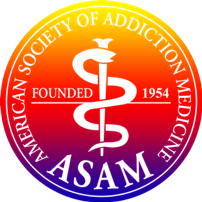
People deserve compassionate, evidence-based care that reflects the chronic and unique nature of this illness

The American Society of Addiction Medicine (ASAM) has adopted a new, more comprehensive definition of addiction. In announcing the update, ASAM states that the intent is “to explain more fully the complexity of this chronic disease with the intent of driving a bold and comprehensive national response that creates a future when addiction prevention, treatment, remission and recovery are accessible to all.”[1]
The new definition reads
“Addiction is a treatable, chronic medical disease involving complex interactions among brain circuits, genetics, the environment, and an individual’s life experiences. People with addiction use substances or engage in behaviors that become compulsive and often continue despite harmful consequences. Prevention efforts and treatment approaches for addiction are generally as successful as those for other chronic diseases.”
Why now?
The group’s formal definition was last revised in 2011, at a time when public understanding of addiction as a chronic brain disease was less sophisticated, and there was widespread stigma surrounding substance use disorder. That earlier definition focused largely on brain circuitry. In light of advances in medicine, pharmacology, and rehabilitation, ASAM gathered a working group of experts to bring the formal description up to date.
How is it different?
In Addiction Professional,[2] the newsletter of the National Conference on Addiction Disorders, editor Gary Enos explains, “the new definition helps to clarify the difference between a substance use disorder, which can be characterized as mild, moderate or severe, and addiction, which reflects changes in brain function that manifest as symptoms of a moderate to severe disorder.”
Why does it matter?
Paul Earley, MD and Yngvild Olsen, MD, MPH are, respectively, President and Vice President of the American Society of Addiction Medicine. In a commentary published at Medium.com[3], they describe the revision this way: “The updated definition underscores the complex interplay of unique biological, psychological, and environmental conditions that have a role in any one individual’s addiction,” they write. “People with addiction deserve compassionate, evidence-based care that reflects the chronic and unique nature of this illness.”
How does the new definition change things?
Early and Olsen make the point that we can’t punish our way out of the crisis of addiction. Incarceration, they assert, is no more a treatment for addiction than it is for mental illness or diabetes. Acknowledging that the solutions are not simple, Earley and Olsen concluded their article by saying, “an updated definition of addiction that better captures the nuance and complexity of the disease may lead us to bolder policy interventions that save and improve more lives. Ultimately, public perception and public policy must reflect this nuanced understanding if our nation is to recover.”
The announcement of the new definition was timed to coincide with National Addiction Treatment Week, an annual observance promoting awareness that addiction is a disease, that evidence-based treatments are available, and that recovery is possible. More information on National Addiction Treatment Week is available here.
[1] ASAM Releases New Definition of Addiction to Advance Greater Understanding of the Complex, Chronic Disease
Press Release October 22, 2019
[2] ASAM Wants New Definition of Addiction to Inspire More Effective Responses
Gary A. Enos, Addiction Professional October 26, 2019
http://www.psychcongress.com/article/asam-wants-new-definition-addiction-inspire-more-effective-responses
[3] Redefining Addiction. Reimagining Solutions.
By Paul Earley, MD and Yngvild Olsen, MD, MPH
October 21, 2019
https://medium.com/@ASAM.org/redefining-addiction-reimagining-solutions-84e0ffbb872f
